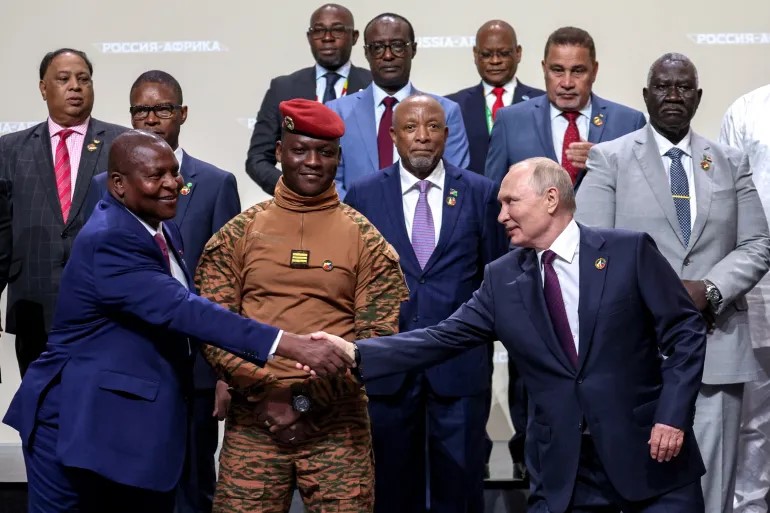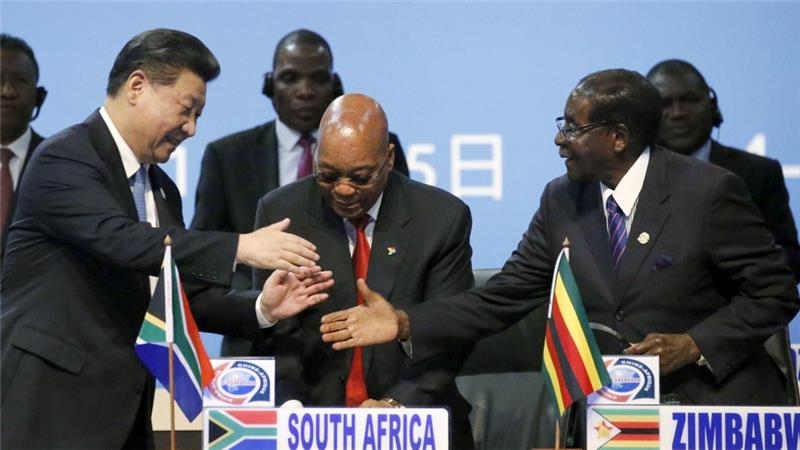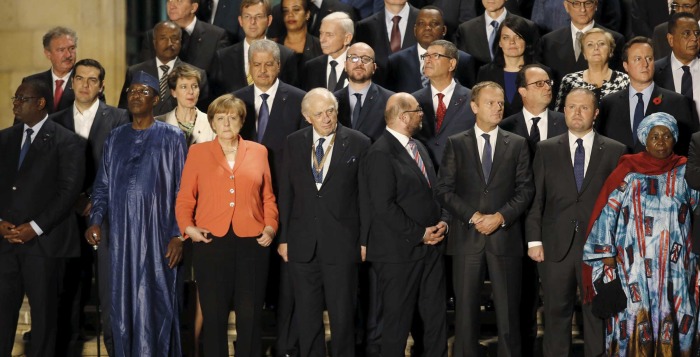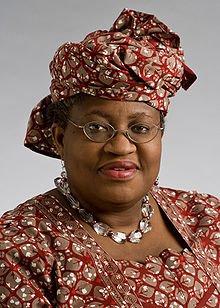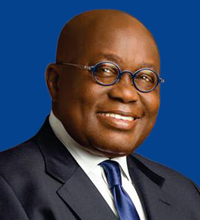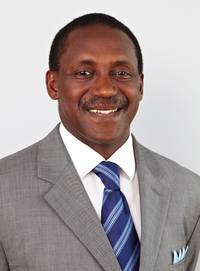By Abdul Ghelleh
Oct. 11, 2012
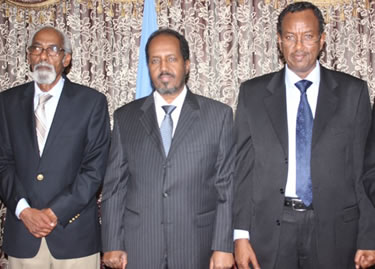 Promptly after arriving at Doha Airport en route to East Africa this past Saturday evening, I frantically wandered around the departure concourse, looking for a power socket for my laptop. It never bothered me before but I leant during the flight that airlines don’t have equipments that carry live signals in their cabins. All the news that you are able to read or listen from the little screen that is mounted at the back of the seat in front of you is pre-recorded.
Promptly after arriving at Doha Airport en route to East Africa this past Saturday evening, I frantically wandered around the departure concourse, looking for a power socket for my laptop. It never bothered me before but I leant during the flight that airlines don’t have equipments that carry live signals in their cabins. All the news that you are able to read or listen from the little screen that is mounted at the back of the seat in front of you is pre-recorded.I spotted several Somali looking men in the departure lounge that came from the West, and some were possibly heading to similar destination to mine. The boarding time for my flight departure had already been announced over the loud, overhead speakers. But as I couldn’t wait to find out who was nominated as the new Somali prime minister, I turned the little gadget on and stood still by the screen impatiently while the browser buffered.
I had no fewer than four Northern Somalis in mind, and since the president is from the South, I wanted to find out who, among my favourites and fellow Northerners, was chosen as the new Somali prime minister. The individuals in my list, I believe, have greater understanding of the way the masters of this universe - the Western ruling elites - and their societies functioned. The world class Northern professionals who are present in Mogadishu in large numbers, I thought, are the only chance that Somalia had in her entire existence as a nation.
I also think that the appointment of a Northerner as prime minister would’ve alleviated the suspicions our brothers in the North harbour that the South, somehow, wants to dominate the political landscape of Somalia. A capable president from the South and equally hands-on prime minister from the North, I concluded, are Somalia’s best hope for a rapid political, social and economic recovery. -**
But my hopes were dashed in a blink of an eye after glancing WardheerNew's headline and learned that a Northern intellectual was not nominated as the new Somali prime minister. In fact at that point I seriously considered halting my trip at Doha and returning to my cold and windswept Northern Europe by the first available flight. But never mind, I said to myself. And as I had other things to do in the region, I put the laptop back in my shoulder bag without properly switching it off, and I continued on my trip. I was one of the last passengers to board the flight.
s Nuradin Farah, the celebrated Somali writer once whispered to a fellow passenger and a journalist from Djibouti: “as long as we are talking, we have not lost hope”. And like other Somalis, I have not lost hope too.
We have now heard, albeit briefly, from previously recorded interview with a Somalia TV Channel about how the new prime minister intends to run the country for the next four years, at least, and his plans to help reverse Somalia’s unprecedented recent past and present misfortunes. I leant a thing or two from the new Somali prime minister’s interview, and not the least that he is seasoned thinker and highly articulate individual.
However, large segments of the Somali population, given our culture of abrupt dismissal before debating and deliberating, cried out and expressed negative reviews of the new prime minister. In fact some people have already portrayed the new prime minister as radical Islamist; someone who after all won’t be good enough for the job; and others, in some quarters of the Somali society say he is, in collaboration with the new president, a member of a new - yet unknown - secret religious cult which will soon mushroom across Somalia.
Personally, I am sceptical of the Somalia politics (though pragmatic one at that), but I see the appointment of the new Somali prime minister as a new opportunity for Somalis to finally set the pace for a new social and political programme in order to ultimately own their own destiny. And as the president and the prime minister are said to be friends and former colleagues, it can be a positive new development when two friends hatch a new strategy to carry out a workable and comprehensive political order to finally take full control of a new struggle for freedom in Somalia. But we have yet to conclusively learn if there is such strategy. I am confident though that in the next few weeks more clarifications will made in Mogadishu, so we have to eagerly await for more information and be patient for a bit longer than we have so far been.
In this state of affairs, Somalia needs a carefully instituted and sustained liberation struggle before any talk of re-establishment of a fully sovereign nation state in what was once known as the Somali Republic. And I urge the upcoming new Somali government not to jump the gun and seek any sort of confrontations with regional mini states such as Puntland and Somaliland, and even with the new Jubba Kenya-Raskhamboni alliance. Instead, the new Somali leaders should work toward creating an inclusive political environment and focus all of their energies - with help from the international community - to pacify the Mogadishu-Beledweyn corridor. And this is not such an easy task.
Furthermore, we should remember that Somalis are in a worse state than what black South Africans were going through after the Second World War. However, the new developments in Somalia can be roughly, if looked at certain dimensions, compared to that of the African National Congress of the mid 1950s. Because of the fragmentation of the black population of South Africa in those days, it became necessary that a small number of friends confer at the sidelines of the organisation to establish a secret executive order within the larger Black Power struggle across South Africa.
So if the said friendship between the new president and the new prime minister is true, it seems that they have more in their sleeves than we’ve heard, and definitely I sense a change in the status quo where previous Somali leaders squabbled for power.
But the short comings here - and one of the main differences between the two societies - are that the black South African elites were exposed to Western political philosophy while their Somali counterparts are not. Therefore, it’s very hard to put the lid on and stand guard on ‘a collective and secret decision making mechanism’. And my fear is that it would almost be impossible for the new governing Somali leaders to stay the course for much longer than three months, before competing clans, regional governments or Arabs take over their political agenda.
In the light of this, my advice to ‘G2’, and possibly ‘G3’ (if Speaker Jawahiri was a friend of the president and the prime minister before the transition ended) is to set a radical social and political framework for a set period of time. And a starting point should be to limit or put to a complete stop to Wahabi Islam activities in Somalia. Before I left Somalia in the early eighties, there were only two teachings of Islam: the Salihiyah and the Qadiriyah, both of which belong to the Sufi tradition of Somali Islam. One or two other Islamic sects were heard but they were not that significant and were never fully embraced by the Somali people.
Al Shabaab, Ahlu Sunna, Hisbul Islam and the latest fashion name presented to the Somali people in 2012 - the Dam Al Djadiid - should be replaced by Saxansoxo, Barwaaqo, Guryo-Samo and Gol-Janno. A de-Arabisation process of Somalia must be put to motion and the present Arab influence reversed. And while Somalia is a Muslim nation, the future social and political direction should be chosen from either ‘wholly Somali owned’ or an ‘Indonesian or Malaysian social and political structure’.
Any aggressive nationalistic rhetoric from the new government at this stage is going to be counterproductive; and confrontations within government and to a large extent with the International Community should also be avoided at all cost.
The second point I like to emphasis is the quality of the new government. Stabilising the country must be the priority - and the only priority, and the necessary institutions with the right personnel must be established and strengthened. Such departments as ‘the Information Ministry’- a hangover from the Cold War era communist propaganda instrument, must be phased out. The new Somali institutions must reflect what is required on the ground and only based on established facts and the real needs of the general Somali population.
And finally, the new leadership in Somalia must understand that large parts of the Somalia stabilisation programme will be outside of their remit for some time to come. And a robust leadership is required of them to adapt to the changing situations quickly. Political maturity must be maintained and displayed at all times; ‘G3’ should understand when it’s right to exercise full power or when to assume full control of the country. Political and security independence will only be possible if the conditions on the ground permit otherwise. And those assisting Somalia must be respected; others should be referred to the international community.
Only then can the new Somali leaders be compared to that of Nelson Mandela and Oliver Tambo of South Africa. The two SA leaders exchanged policy ideas in a top secret communications channel between world famous Robin Island prison and a Swedish hospital room, before successfully taking full control of their country, and thus ending centuries of white minority oppression in South Africa.
Mr President and Mr Prime Minister, the ball is in your court!

